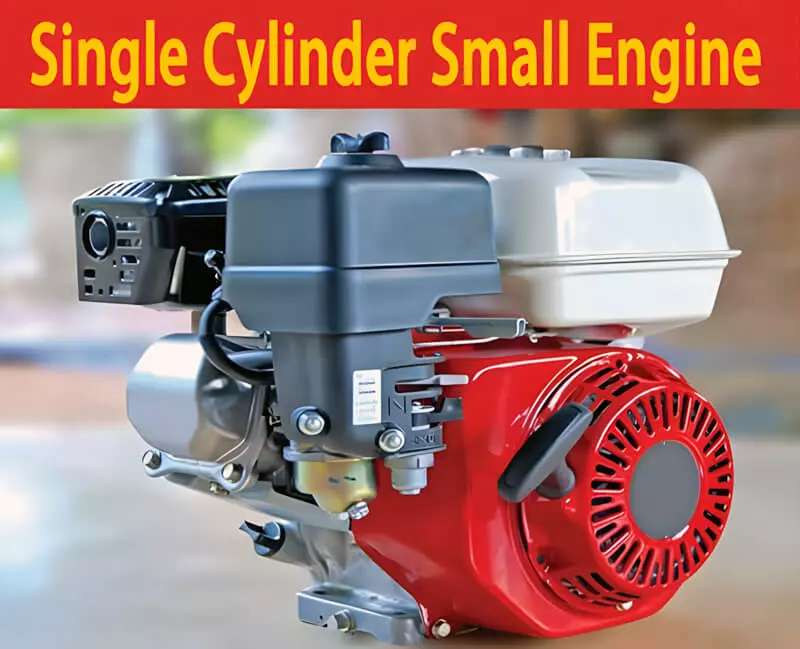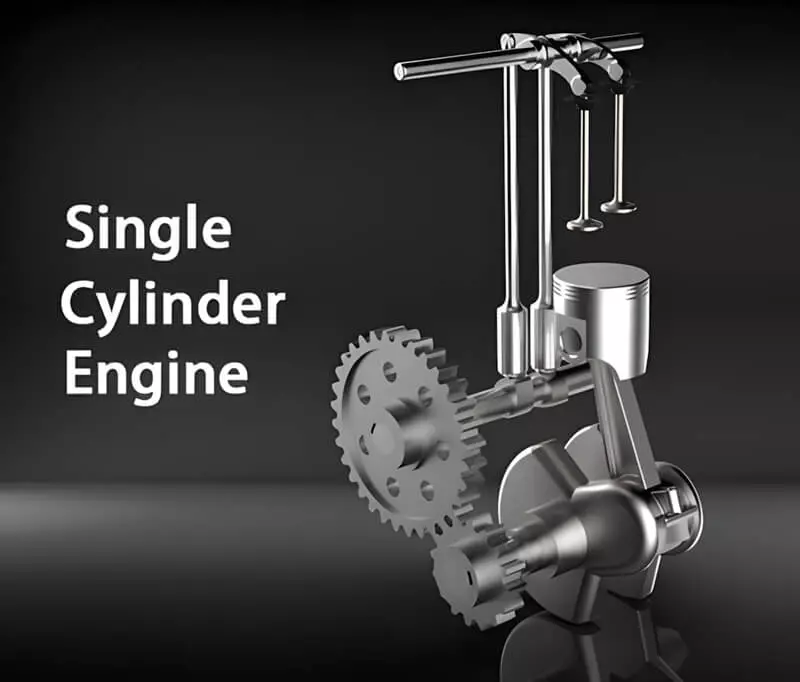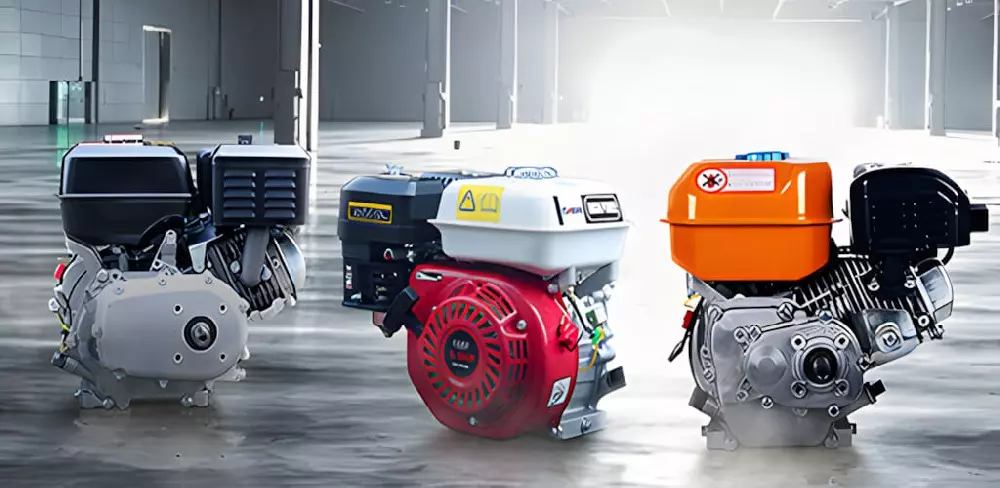BISON concentrates on crafting single-cylinder small engines with power outputs from 3 to 16 horsepower, tailored specifically for generators and light construction devices etc. Our range includes robust four stroke engines that come in both vertical and horizontal shaft configurations to suit a variety of functional needs. We also provide multiple keyway shaft configurations, ensuring easy integration and compatibility with diverse types of machinery. This adaptability, along with our dedication to quality and efficiency, positions BISON single cylinder small engines as a top choice for reliable power solutions in various sectors.
Experience the power and reliability of BISON single cylinder engines for your applications.
contact BISON
BISON single cylinder small engine has a series of unique product advantages that make it the best in its class:
BISON single cylinder small engines are known for their adaptability and are commonly integrated into various types of machinery due to their efficiency, dependability, and versatility in performing different mechanical functions. Below is their primary uses and applications:

Small yet robust, single cylinder small engines are frequently employed in numerous devices, including lawn mowers, generators, pressure washers and compact vehicles.

Choosing the appropriate single cylinder small engine is vital, because it significantly influences your equipment's performance, efficiency and longevity. Opting for an ill-suited engine can cause poor functionality, higher maintenance expenses and possible breakdowns. Despite the wide array of models and specifications available, finding the perfect engine might seem overwhelming.
This article aims to uncover single cylinder small engine selection. BISON will offer essential considerations and actionable recommendations to help you select optimal product for your requirements. Both retailers and dealers will find this guide invaluable, providing them with expertise needed to make a knowledgeable and assured purchasing decision.
Learning about how single cylinder small engines work, can help us know why their widespread use, and their ability to maintain a balance of power and efficiency. At the heart of single cylinder engine is a series of processes that transform fuel into mechanical energy.
Cylinder: Where combustion occurs.
Piston: This is a place where fuel combustion occurs.
Crankshaft: Changes piston's straight line movement into circular motion.
Spark plug: Initiates the burning of fuelair mixture within the cylinder.
Valve: Regulates the entry and exit of air fuel mix and exhaust gases.
Carburetor or fuel injector: Adjusts air and fuel blend entering the engine.
Typically, these engines operate on a four stroke cycle, comprising the following phases:
The intake valve opens, causing piston to descend.
And pull air-fuel mixture into the cylinder.
The piston ascends after the intake valve shuts.
This compresses the air-fuel mixture, increasing its volatility.
The spark plug fires, igniting compressed air-fuel mixture.
The explosion forces piston downward, creating power.
This stroke generates mechanical energy.
The exhaust valve opens and piston moves upward again.
Thisexpels burned gases from the cylinder in preparation for next cycle.
We've covered the fundamentals of a single cylinder small engine. Moving forward, we'll explore in detail the various considerations important in choosing correct engine for your needs.
Selecting the appropriate single cylinder small engine involves examining several crucial factors to ensure it meets specific requirements of your application. Here are important factors to consider throughout the choice process.
Engine displacement: Typically expressed in cubic centimeters (cc), refers to combined volume of an engine's cylinders. A higher displacement generally indicates greater power and torque, equipping engine to manage more demanding activities.
Horsepower: This term describes the total power an engine produces. Understanding the necessary horsepower is crucial for determining whether an engine can sufficiently support the intended load. Different tasks may require different horsepower levels.
Gasoline
Pros: Widely available, usually easier to start in cold conditions.
Cons: Usually less fuel efficient and produces more emissions than diesel engines.
Diesel
Pros: Better fuel efficiency, more torque at low rpm.
Cons: Generally heavier and noisier, diesel engines often need costlier upkeep.
Air vs liquid cooling
Air cooling: Uses air to dissipate heat. Simple, light and inexpensive. Good for short-duration or low-intensity tasks.
Liquid cooling: Uses a circulating coolant within small engine. More effective at controlling heat during extended use, but adds complexity and weight.
Manual recoil start
Pros: Simple, reliable, and not battery-dependent.
Cons: Requires physical effort, and may be more difficult to start in cold weather.
Electric start
Pros: Convenient and user friendly.
Cons: Added weight, requires batteries that may need to be occasionally charged or replaced.
Lightweight engines facilitate easier transportation and installation, making them ideal for applications where mobility is critical, such as portable generators, water pump and recreational vehicles.
High quality materials: ensure longer life and better wear resistance. Look for engines featuring components made from materials like aluminum or cast iron.
Trusted brand: Usually indicates better build quality, customer service, and spare parts availability. Analyzing user reviews and feedback can offer insight into reliability.
Lower noise levels are critical in residential areas, campgrounds, or other environments where noise pollution is a concern. Some engines offer noise reduction features to meet these needs.
Emission standards: Choose an engine that meets regional emission standards to reduce environmental impact and avoid legal issues. Opting for an engine that meets EPA or CARB standards is advisable.
Fuel efficiency: Improved fuel efficiency can reduces operating costs and minimizes environmental impact by cutting down on fuel use and emissions.
By thoroughly assessing these aspects, you can choose a single cylinder small engine that optimally suits your performance requirements, operational setting, eco friendly priorities, guaranteeing dependable and effective performance.
To ensure best performance and extend lifespan of single cylinder small engine, it's vital to maintain it by changing oil regularly, replacing air filter, addressing typical problems, storing it correctly and using premium fuels and lubricants. These tips are crucial for keeping your engine in optimal condition.
Regular oil changes: Follow to manufacturer's guidelines for timely oil changes, to keep small engine well lubricated and reduces wear.
Replace air filter: Regularly clean or replace air filter, to ensure sufficient airflow for effective combustion.
Troubleshoot common problems: Identify and solve problems such as starting problems, power loss, overheating, and unusual noises, by checking components spark plugs, fuel system and cooling system.
Store engine properly: To safeguard engine during storage, clean it thoroughly, drain or stabilize fuel, change oil, lubricate the cylinders, and store in a dry, cool environment to avoid corrosion and wear.
Use high quality fuel and lubricants: Use fresh, uncontaminated fuel and oil recommended by manufacturer, to protect engine and ensure it runs smoothly.
When choosing a single cylinder small engine, consider your specific needs, such as power requirements, fuel type, and portability. Durability and environmental impact are also key factors. Regular maintenance will ensure that your engine remains reliable for a long time.
Ready to make a smart choice for your single cylinder small engine needs? To make a reliable choice, consider BISON single cylinder small engines, a professional manufacturer dedicated to producing high-quality power. Power your projects with an engine that perfectly matches your specific needs. Choose a BISON single cylinder small engine for superior performance. Contact us today to find the perfect engine for you!
With proper maintenance, small engine can last up to 15 years. Just change oil regularly, keep fuel fresh and use it as intended.
Single cylinder engines have fewer moving parts, making them simple to maintain and fix. Also, their replacement parts are cheaper than those for twin cylinder engines.
Should replace oil and oil filter in the small engine yearly, preferably in spring or summer, or after 50 hours of use, whichever comes first.
table of contents
Choose BISON single cylinder engines for superior performance and unbeatable wholesale value
contact BISON